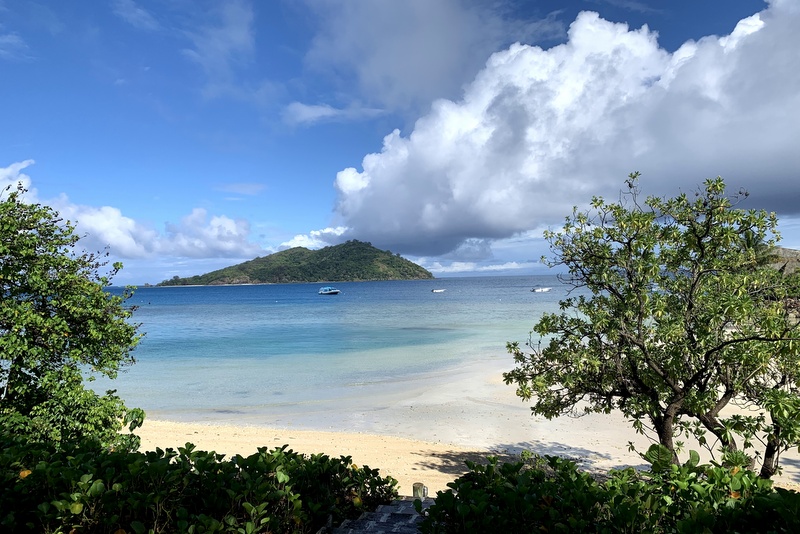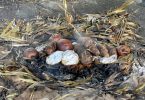Although English is the official language and is widely spoken in Fiji, here are some useful Fijian words and phrases to get you started.

Useful Fijian Words and Phrases – Photo © Gourmantic
Useful Fijian Words and Phrases
Here is a selection of common Fijian words and expressions have collected during our stay in Fiji. Each word is translated to Fijian and spelled out phonetically in brackets.
- hello – bula (mbula)
- goodbye – ni sa moce (ni sa moe they)
- please – yalo vinaka (yalo vee naka)
- thank you – vinaka (yalo vee naka)
- yes – io (eeyo)
- no – sega (senga)
- excuse me – tulou (too low)
- good morning – ni sa yadra (ni sah yan dra)
- lady – marama (ma ra ma)
- man – turaga (tu ran ga)
- drink – gunu (go noo)
- coconut – niu (new)
- quickly – vaka totolo (vaka toe toe lo)
- eat – kana (ka na)
- village -koro (ko roh)
- house – vale/bure (valeh/mbureh)
- one – dua (ndua)
- two – rua (roowa)
- shop – sitoa (see toah)
- toilet – vale lailai (vale lie lie)

Sunset Over Malolo Island – Photo © Gourmantic
Fijian Pronunciation Guide
Fijian pronunciation is similar to English with a few exceptions. You may be familiar with the word Nadi pronounced as “Nahn-di”. Here is an easy guide to help you with your stay in Fiji.
- a is ah as in father, but shorter.
- b is pronounced “mb” as in bamboo. you’ll hear “bula” or “hello” many times. You may notice the slight humming “m”, almost silent at the beginning. When something precedes the “b”, then the “m” sound becomes more pronounced. The formal “hello”, Ni Sa Bula, is pronounced “ni sahm” boola”.
- c is th as in this.
- d is nd as in candy.
- g is ng as in singer.
- i is i as in sit or ee as in routine.
- q is ngg as in finger.
- u is oo as in bamboo or u as in put.
You may also like in this series…





